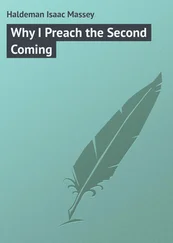Everybody was with him.
Mavala would laugh at this, if not with her mouth, at least with her shoulders. Her silent laugh like a tremor. You’d have to watch her closely to see it. Not laughing at the men as men, but at their notion of how easy it would be. All we have to do is. .
No heroes. The men wander eight days. There was no Rosh Pinah, at least not at the end of that dry river. Those who survived were recaptured and sent back to the diamond fields in chains.
My snorer gently wakes. He rubs his forehead with the back of his hand and squints into the light.
Antoinette thinks of her. She thinks of her in a crowded room in a place unknown but familiar. She thinks of her wanting to speak and how difficult that must be because it isn’t the kilometers or even the years that create distance, it’s silence.
Antoinette, I want you to under stand that I
Antoinette, I only want to explain to you
Why are there so many words in my head and none on the page? There is only the noise outside this window, the shouting that never ends, all this clashing music. Do I need to tell you this is not a room for a child, my child?
May I still call him that?
It is not for me to say.
152. ON THE MOLE AT SWAKOPMUND
They watch the sun flatten into the Atlantic. Soon the light so powerful for so long will be nothing but a smear on the horizon. The white-capped southwest rollers wrinkle toward them and pound the rocks at their feet. Above swoon the terrible gulls. Obadiah spits happily into the water. He said they needed to show Tomo the ocean, his ocean. The two of them in topcoats over their best clothes, on the mole at Swakopmund. Behind them murmur tourists toasting the sunset.
“Before the Germans built this,” Obadiah says, “they dropped horses off the sides of the ships.”
“Why?”
“To swim in the chattel.”
“Chattel?”
“The merchandize.”
“Did the horses make it?”
“Sometimes.”
“Some drowned.”
“Of course.”
She looks north, at the stretch of beach, at Tomo. Now that he’s built his palace of sand, he stomps it. Then he calls out to them — his ouma and oupa — on the mole: “PAY ATTENTION PEOPLE!” He sprints into the water and dives into the waves. She waits for Tomo’s head to bob up before she breathes.
Obadiah nudges her, points at the sun, at the last slit of light drawn across the edge of the water.
“Cold?”
“Not so much.”
She leans against him as the wind flaps their topcoats.
I’m losing her face. I remember more her hands, which were not small, and how they once took my feet hostage and rubbed them while I swore at her. Her eyebrows were thorny. I think of her lips and how parched they were, and her voice that got huskier when she was thirsty. I’d try to keep the water away from her so she’d talk that way longer. Her voice alone, I tell you, could slow an afternoon.
The boys are flailing up and down on their beds. Some nights the pillow wars go on for hours. That long a battle can get bloody, especially with foam pillows hardened by years of sweaty heads. The lights stay on all night in the hall that separates the two dorms. Antoinette enters through the far door and walks the hall, peeks in the west dorm and then the east dorm. Her shadow reaches, reaches across the beds. The quiet is immediate. Only their heartbeats are loud. Tiny squeaks of the bedsprings, like dying mice, their bodies tense — waiting, praying for the shadow’s retreat.
Other nights she prowls around outside, watches the chaos through the little windows, lets them carry on as if she’s curious to see what a world without her looks like.
In memory of Anna Nugolo, Anna Kanjimbi, and Freddy Khairabeb.
Namibia:
Colonized by Germany in 1884 and known as Deutsch-Südwestafrika. After the defeat of the Germans during World War I, the name was changed to South-West Africa and the country was governed by South Africa under a mandate issued by the League of Nations. The mandate was abolished by the United Nations General Assembly in 1966. South Africa remained in power, claiming that the UN had no authority to rescind the mandate, and continued to govern the territory as a virtual fifth province. Apartheid was officially implemented in 1977. In 1988, after two decades of war between SWAPO and South Africa, a UN-sponsored cease-fire ended the conflict. Namibia became independent in 1989.
SWAPO:
Southwest Africa People’s Organization, liberation organization formed in 1960 to fight South African rule. After winning the 1989 elections, SWAPO became the governing party in independent Namibia.
PLAN:
People’s Liberation Army of Namibia, military wing of SWAPO.
SADF:
South African Defense Force, name of the South African military force that fought SWAPO.
The Struggle:
Commonly used in Namibia to describe the long war between SWAPO and the SADF. Much of the war was fought along the more densely populated border Namibia shares with Angola. SWAPO had established bases in Angola. No accurate death toll numbers exist. Conservative estimates reach 25,000 combat casualties.
DTA:
Democratic Turnhalle Alliance, opposition party in independent Namibia. Prior to independence, DTA was associated with the ruling white regime.
Cassinga:
On May 4, 1978, South African planes bombed a SWAPO base deep in Angola, killing an estimated seven hundred people, among them hundreds of civilian refugees.
Angolan Civil War:
A chaotic civil war broke out in Angola after the Portuguese withdrawal in 1975. Among those fighting were the MPLA, supported by Cuba and the Soviet Union, and Jonas Savimbi’s UNITA (National Union for the Total Independence of Angola), supported by South Africa and the United States. SWAPO was aligned with the MPLA and also received support from the Soviet Union as well as China. Hence, both wars, in Angola and Namibia, took on elements of a proxy Cold War. The war in Angola ended in 2002.
CDM:
Consolidated Diamond Mines, mining company located along the southern coast, a subsidiary of the DeBeers Corporation.
Zorba:
A fine whiskey with a smooth licorice finish.
I would like to thank the following for their time and immeasurable support over the course of many years: In Namibia, the Khairabeb, Guidaooab, and Brandt families, and in the United States, Pat Strachan, Ellen Levine, Dantia MacDonald, Robert Preskill, David Krause, Melissa Kirsch, and Rhoda Kaplan Pierce. I am also grateful to the American Academy of Arts and Letters and the American Academy in Rome for a generous fellowship.
Peter Orner’s stories have appeared in the Atlantic Monthly, McSweeney’s, Bomb, The Best American Short Stories, and The Pushcart Prize XXV. They are collected in his first book, Esther Stories, which received many honors, including the Rome Prize from the American Academy of Arts and Letters and the Goldberg Prize from the Foundation of Jewish Culture, and was a finalist for a Hemingway Foundation/PEN Award. Orner is a graduate of the University of Michigan, Northeastern University School of Law, and the University of Iowa Writers’ Workshop. He has lived in Namibia and currently teaches at San Francisco State University. The Second Coming of Mavala Shikongo is his first novel.












